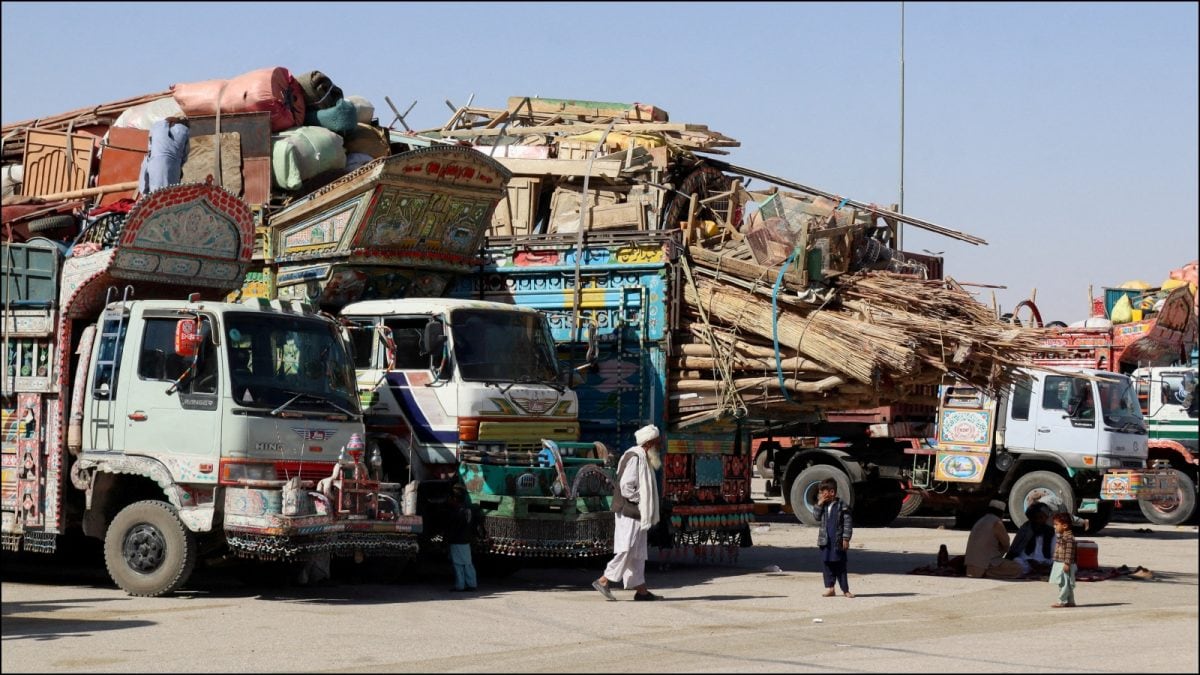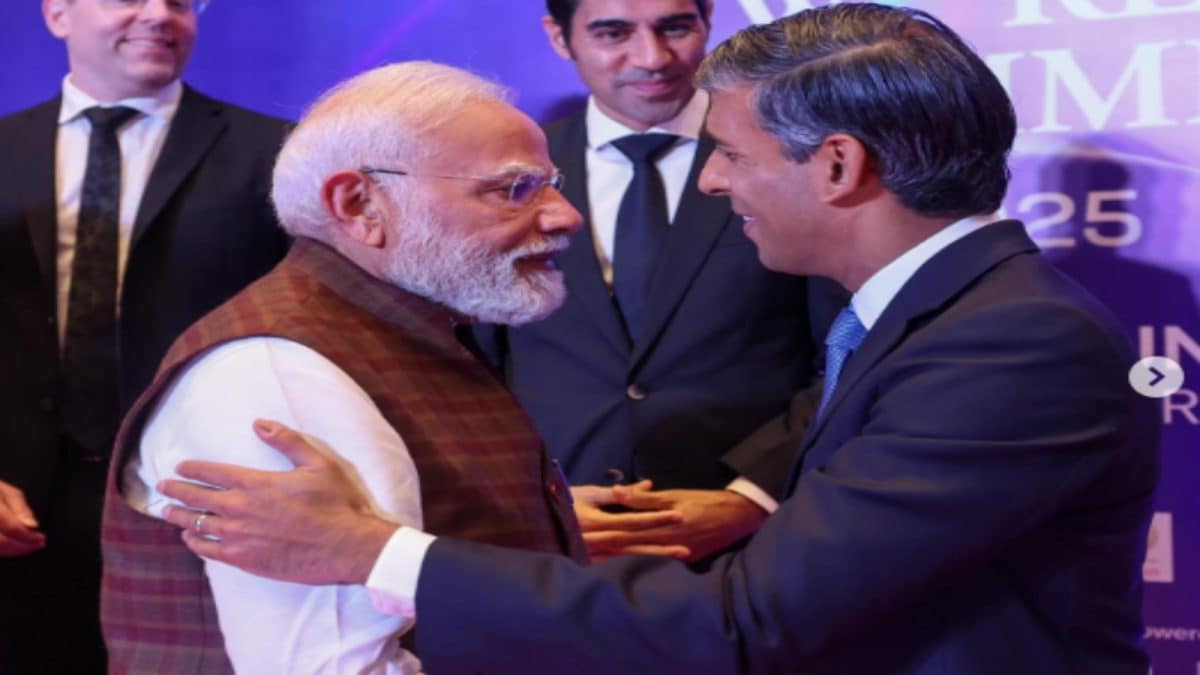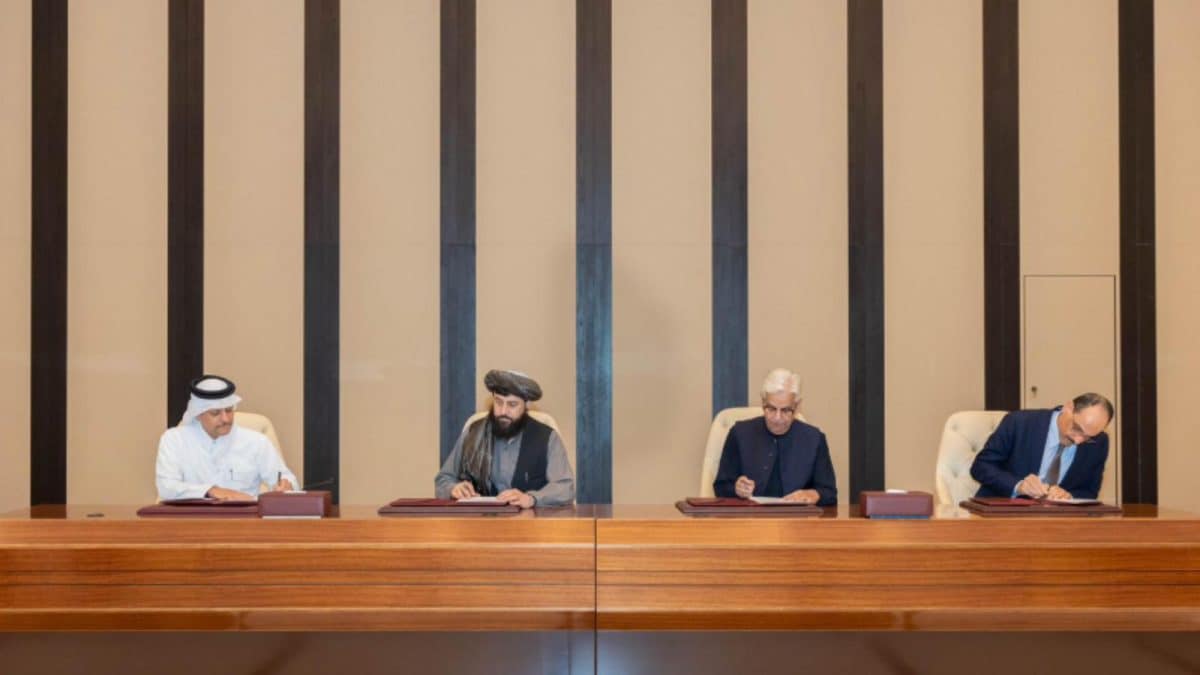The security state of Pakistan, led by Asim Munir, fusing Chinese censorship tech with Western surveillance tools has built one of the world's most extensive monitoring systems outside China, reveals an Amnesty report. From mass phone-tapping to internet blackouts, the Munir-led regime is weaponising technology to crush dissent, silence opposition, and tighten military control.

Pakistan's de facto ruler Asim Munir has turned the state into a surveillance fortress. (Images: File/Unsplash)
Notorious for stifling dissent, Pakistan's authoritarian de facto regime of army chief Asim Munir is spying on millions of its citizens by blending a Western phone-tapping system and a Chinese-built internet firewall to censor social media, Amnesty has said.
The rights group called it one of the most comprehensive examples of state surveillance outside China, news agency Reuters reported.
China is the world's most sophisticated security state, with its vast surveillance network combining facial recognition, phone tapping, and online censorship. From the Great Firewall to real-time monitoring of dissent, Beijing has turned technology into a tool of absolute political control. Now, "iron-brother" Pakistan is following suit by replicating Beijing's surveillance model.
In the report released on Tuesday, Amnesty said Pakistan's surveillance network was built using both Chinese and Western technology and is being used to power a sweeping crackdown on dissent and free speech.
The watchdog warned that the measures have created a "chilling effect in society, whereby people are deterred from exercising their rights, both online and offline".
PAKISTAN SNOOPS ON 4 MILLION PHONES USING CHINESE FIREWALL, WESTERN SUPPLIERS: AMNESTY
According to Amnesty, Pakistan's spy agencies monitor at least 4 million mobile phones simultaneously through its Lawful Intercept Management System (LIMS). Complementing this is WMS 2.0, a Chinese-supplied internet firewall capable of inspecting and blocking 2 million active sessions at a time. The firewall is reportedly supplied by Beijing-based Geedge Networks and restricts access to platforms such as YouTube, Facebook, and X.
The report said about 6.6 lakh websites are currently blocked across Pakistan. The measures have hit hardest in Balochistan, where districts have faced years-long internet blackouts. Rights groups accuse the military of enforced disappearances and killings of Baloch and Pashtun activists, an allegation that Munir's military denies.
Amnesty's findings draw in part from a 2024 Islamabad High Court case filed by Bushra Bibi, the wife of jailed former prime minister Imran Khan, after her private calls were leaked online. During the proceedings, Pakistan's defence ministry and intelligence agencies denied any capacity for phone tapping.
However, the telecom regulator admitted that phone operators had been ordered to install LIMS for "designated agencies".
Amnesty said it reviewed licensing agreements, trade data, leaked technical files, and Chinese records that tied the firewall supplier to state-owned firms in Beijing. The firewall also incorporates equipment from US-based Niagara Networks, software from France's Thales DIS, and servers from a Chinese state IT firm, reported Reuters.
An earlier version used Canada's Sandvine. Niagara told Reuters it follows US export rules, does not know the end users of its products, and only sells tapping and aggregation gear.
The phone-tapping system itself is manufactured by Germany's Utimaco and deployed through monitoring centres run by UAE-based Datafusion. Datafusion told Amnesty that its centres are sold only to law enforcement agencies and that it does not produce LIMS.
"Having both widespread phone tapping and internet filtering in Pakistan constitutes a troubling development from a human rights perspective and suggests greater restrictions on freedom of expression and privacy will become more common as such tools become easier to implement," Ben Wagner, Professor of Human Rights and Technology at Austria's ITU told Reuters.
HOW MUNIR-LED PAKISTAN FURTHER SILENCED VOICES AFTER IMRAN KHAN'S ARREST
The already-restricted political and media freedoms in Pakistan have tightened in recent years, particularly after Munir's military withdrew support from former PM Imran Khan in 2022, who was later jailed and thousands of his party activists were detained.
Khan was ousted via a parliamentary no-confidence vote in April 2022 amid a rift with Munir, who had initially backed him.
After Khan's arrest, thousands of Pakistan Tehreek-e-Insaf (PTI) supporters were detained during nationwide protests, with over 1,400 arrested after the May 2023 riots. By 2025, 108 PTI members, including opposition leader Omar Ayub Khan, received 10-year sentences from an anti-terrorism court for alleged involvement.
Media curbs by the establishment intensified, with Pakistan Electronic Media Regulatory Authority (PEMRA) banning airtime for Khan, while the Pakistan Telecommunication Authority imposed internet shutdowns and blocked platforms like X and YouTube during PTI unrest.
The manufactured-February 2024 Federal elections were marred by undue restrictions on freedoms of expression, assembly, and association, alongside electoral violence, as noted by the US State Department and Freedom House.
In July, Pakistan blocked 27 YouTube channels, many of which are operated by Pakistani journalists, political commentators, and activists.
In the restive province of Balochistan, Pakistan has curbed dissenting voices through enforced disappearances, arbitrary arrests, and violent crackdowns on activists, particularly targeting the Baloch Yakjehti Committee (BYC). Internet blackouts to silence dissent has been the norm.
Now, the Amnesty report makes clear that Pakistan, obsessed with "security", has embraced a surveillance model strikingly similar to China's to silence dissent and tighten state control. With mass phone-tapping, sweeping internet blackouts, and censorship of political opposition, Beijing's "iron-brother" may be cementing its place among the world's most repressive security states.
- Ends
Published By:
Sushim Mukul
Published On:
Sep 9, 2025

 1 month ago
1 month ago

















